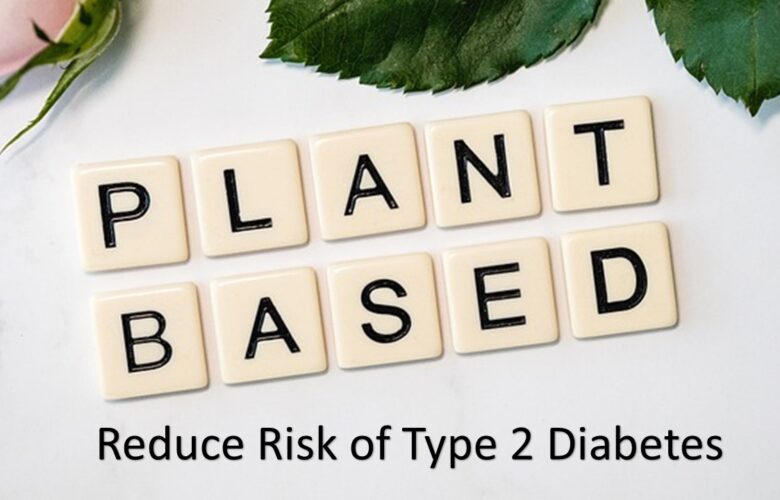This is part four in a series of six on the benefits of a plant-based diet. Our focus today is “does a plant-based diet reduce the risk of type 2 diabetes?” Type 2 diabetes is a disease that increases your chances of having heart disease, cancer, stroke, nerve damage, and so much more. This article will look at what type 2 diabetes is and will a plant-based diet make a difference.
What is a plant-based diet?
A plant-based diet emphasizes whole, minimally processed plant foods, such as fruits, vegetables, whole grains, legumes, nuts, and seeds, while minimizing or avoiding animal products such as meat, dairy, eggs, and fish.
There are different types of plant-based diets, ranging from a fully vegan diet that excludes all animal products to a vegetarian diet that may include dairy and eggs or a flexitarian diet that is primarily plant-based but includes occasional meat or fish.
A plant-based diet is often associated with health benefits such as lower rates of chronic diseases like heart disease, type 2 diabetes, and certain cancers. It is also considered more environmentally sustainable than a diet high in animal products, requiring less land, water, and other resources.
However, it is important to note that removing animal products from one’s diet does not automatically mean it is healthy. A well-planned plant-based diet should ensure adequate intake of all essential nutrients, including protein, iron, calcium, and vitamin B12, through various plant-based sources.
What is Type 2 Diabetes?
Type 2 diabetes is a chronic condition in which the body becomes resistant to the effects of insulin, a hormone that regulates blood sugar levels. As a result, the pancreas may produce more insulin to try to compensate, but over time, it may not be able to keep up, leading to high blood sugar levels.
Risk factors for type 2 diabetes include:
- A family history of the disease.
- Being overweight or obese.
- Physical inactivity.
- A diet high in refined carbohydrates and saturated or trans fats.
Certain ethnic groups, such as African Americans, Hispanics/Latinos, and Native Americans, are also at higher risk.
Symptoms of type 2 diabetes may include increased thirst and hunger, frequent urination, blurred vision, slow healing of wounds, and numbness or tingling in the hands or feet. However, some people may not experience any symptoms at all.
Type 2 diabetes is typically managed through lifestyle changes and medications, such as metformin, insulin, or other glucose-lowering drugs. Treatment aims to control blood sugar levels, prevent complications, and improve overall health. Working with a healthcare professional to develop an individualized treatment plan is important.
How Does a Plant-Based Diet Reduce the Risk of Type 2 Diabetes?
A plant-based diet, which is rich in fruits, vegetables, whole grains, nuts, seeds, and legumes, can help reduce the risk of diabetes in several ways:
- Lower glycemic index: Plant-based foods typically have a lower glycemic index than animal-based foods, meaning they cause a slower and steadier rise in blood sugar levels. This can help prevent insulin resistance and reduce the risk of developing type 2 diabetes.
- Higher fiber content: Plant-based foods are generally high in dietary fiber, which slows down the absorption of glucose and helps regulate blood sugar levels. Fiber also promotes satiety and helps control appetite, which can help with weight management, a key factor in reducing the risk of diabetes.
- Lower saturated and trans fats: Animal-based foods are often high in saturated and trans fats, which can contribute to insulin resistance and inflammation. Plant-based diets, on the other hand, are typically lower in these harmful fats and higher in healthier unsaturated fats.
- Anti-inflammatory properties: Plant-based foods are rich in anti-inflammatory compounds, such as antioxidants and polyphenols, which can help reduce inflammation in the body. Chronic inflammation has been linked to insulin resistance and the development of type 2 diabetes.
- Better gut microbiome: The gut microbiome plays an important role in regulating blood sugar levels and maintaining overall health. Plant-based diets are rich in prebiotic fibers, which feed the beneficial bacteria in the gut and promote a healthier microbiome.
Summary
Overall, a plant-based diet can help reduce the risk of diabetes by promoting healthy blood sugar levels, reducing inflammation, and improving gut health.
Other benefits of a plant-based diet:
Featured Image by Fuzzy Rescue from Pixabay
